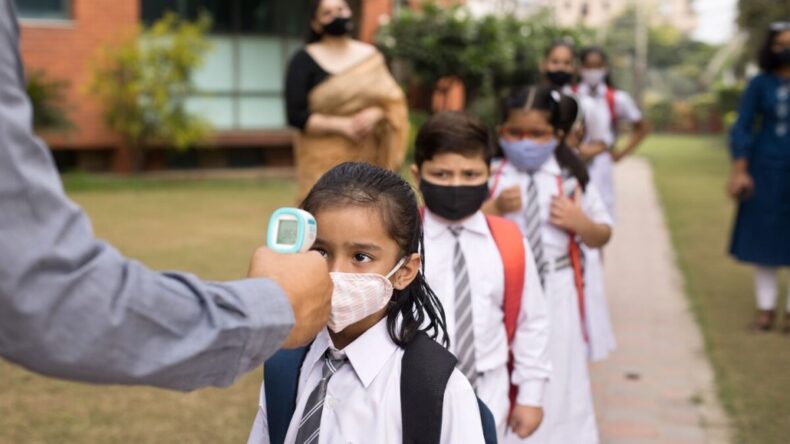Adenovirus is becoming the recent threat in Kolkata after Corona virus and Dengue. There has been a surge in flu and fever cases since January in Kolkata. Recent unofficial reports state that 11 children have died due to Flu and fever. State Health officials in Kolkata are instructed to keep an eye on children affected with flu and fever of any kind in order to prevent any more casualties. Pediatric cares and beds are getting filled at a faster pace with a spike in the number of cases. Citizens have also been instructed to not ignore the symptoms of adenovirus and to stay alert.

Adenovirus causes mild cold or flu-like illness which can affect people of all ages, according to US Centers for Disease Control and Prevention (CDC), but children up to 5 years of age are prone to contracting the virus at a higher rate. According to the US National Library of Medicine, even for a healthy child, adenovirus can be a ‘life threatening and serious condition’.

Adenovirus 7 is “the most dangerous of all strains of this virus, known to cause acute respiratory distress in children. Therefore, if a combination of these two strains attack a child, the outcome would be severe”, reported the Associate Professor of Pediatrics in Institute of Child Health, Kolkata, Prabhas Prasun Giri.
The state health Department says, 30% of the total number of samples sent to National Institute of Cholera and Enteric Diseases (ICMR-NICED) in Kolkata, tested positive to Adenovirus. Scientists also identified that the majority of the samples contained both strains 7 and 3.
Adenovirus in detail
Symptoms
Adenovirus can result in mild to severe illness. Some of the common and mild symptoms of adenovirus are flu, fever, cold, sore throat,gastroenteritis or inflammation of the stomach, and acute bronchitis.
In some severe conditions, it can lead to pink eye or conjunctivitis, and pneumonia. Children and people with pre-existing respiratory illness and weaker immune systems are more prone to developing the severe illness to adenovirus compared to others.
Transmission
Adenovirus spreads through direct contact with the flu droplets. The transmission can occur through direct physical contact with an infected person – touching or shaking hands as per CDC, through sneezing and cough droplets in air, and can also spread through feces (for eg: changing diapers). It can also be brought under the category of air-borne infection.
Prevention

The best way to overcome the infection is prevention. According to the CDC, US, to avoid the infection, one must frequently wash the hands with soap and keep it sanitized, and avoid touching eyes, nose and mouth with contaminated hands. Avoid any kind of contact with an affected person and keep them isolated.
Always wear a mask around infected people and in Hospitals. Hydration is the key, and never ignore the symptoms, check with a Doctor immediately in case of any symptoms. If the cases rise and the conditions worsen, lock-down of schools and online classes can be implemented to avoid the transmission among children.
Treatment
There is no antiviral vaccination or specific medication for this virus as of now. It is an ongoing research. Most severe cases are now dealt with pain killers. Other steps include symptom management with specific medication. A good rest along with proper hydration is advised.













